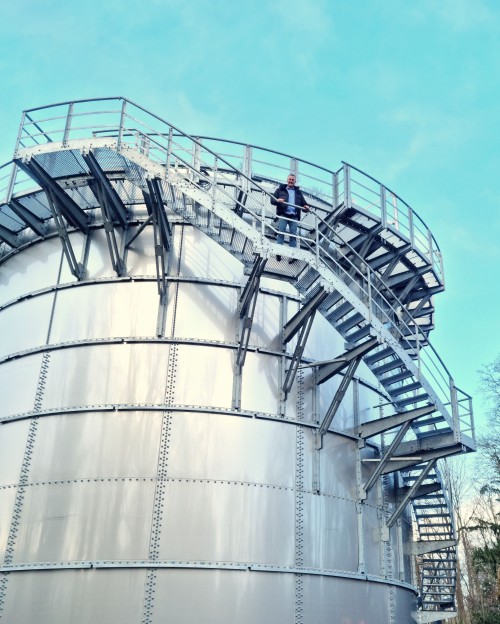DREWSEN invests in the expansion of its wastewater treatment plant
In preparation of future growth development, DREWSEN Spezialpapiere is investing more than 1.5 million euros to develop its existing wastewater treatment plant.
At the core of this expansion project, is the addition of a new biological stage for the degradation of substances dissolved in the waste water. This is predominantly potato or corn starch explain Carsten Gatz and Gerhard Meyer, who spearhead the project.
Carsten Gatz describes the extensive and complex process as follows: "DREWSEN has a
new, 1200 m³ biological high-load stage. With a retention time of at least four hours, longchain
starch polymers are "digested" by microorganisms and converted into biomass. These
microorganisms live on many millions of small “crisps”. Excess biomass is removed in a
subsequent flotation process. Together with cellulose fragments and calcium carbonate
pigments, the biomass is then thickened and sent to a biogas plant to be converted into
energy. The pre-treated wastewater is then fed into the low-load biological section of the
treatment plant, which DREWSEN has already been operating for several decades.“

The aim of the investment is to enable future growth, e.g. in papers that replace single-use plastic, without adversely affecting the Lachte River, which crosses the mill-site. "The Lachte is an important habitat for the river pearl mussel, which is rarely found in Germany and throughout Europe. We are doing our best to ensure that it continues to thrive here," says Gerhard Meyer.
The new facility has now been in trial operation since the beginning of the year. The
complex biological processes are beginning to establish, with the aim that by the summer of
2022, the system will have reached a largely stable and productive state.
